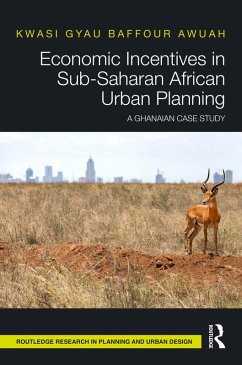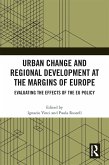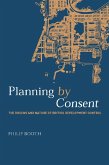Across ten chapters, it analyses the connection between urban planning and socio-economic development, indicators of effective urban planning systems, and the role and influence of incentives with real-world evidence. It develops quantitative models to estimate the costs and benefits of urban planning systems, focussing on the developing world where organised data is less accessible. Using Ghana as a case study, it demonstrates a step-by-step approach on how to implement the quantitative models discussed.
Economic Incentives in Sub-Saharan African Urban Planning will be useful reading for researchers, policy-makers, development agencies, and students in urban planning, sustainable development, and economics.
Dieser Download kann aus rechtlichen Gründen nur mit Rechnungsadresse in A, B, BG, CY, CZ, D, DK, EW, E, FIN, F, GR, HR, H, IRL, I, LT, L, LR, M, NL, PL, P, R, S, SLO, SK ausgeliefert werden.









